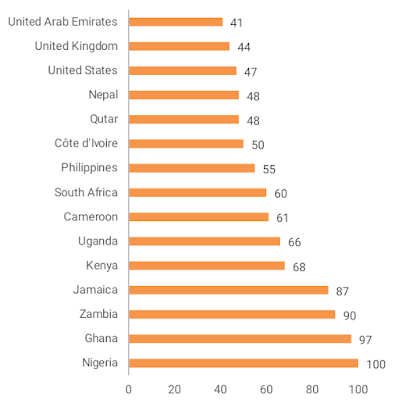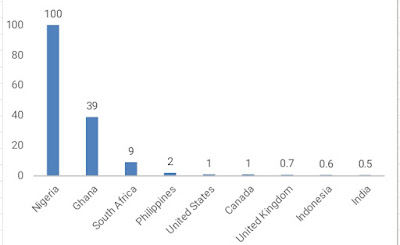The recent removal of fuel subsidies in Nigeria, followed by Algeria, has sparked significant discussions regarding the implications for these countries and their neighboring nations. This article aims to delve into the multifaceted effects of subsidy removal, taking into account the launch of the Dangote Refinery in Nigeria, which has become operational and is poised to become the largest single train refinery in the world. We will explore the economic, energy, and environmental ramifications, as well as the potential impact on regional dynamics and the need for effective policy measures.
Fuel Subsidy Removal in Nigeria and Algeria:
Fuel subsidies have long been a contentious issue in many nations, Nigeria and Algeria included. These subsidies were initially implemented to alleviate the financial burden on consumers by providing access to fuel at prices lower than the market rate. However, over time, they have proven to be economically unsustainable and led to significant fiscal strains on the respective governments.
The removal of fuel subsidies in Nigeria has had both positive and negative implications. On the positive side, it allows the government to reduce its expenditure on subsidies, freeing up resources that can be redirected towards critical sectors such as education, healthcare, infrastructure, and social welfare programs. Additionally, the removal of subsidies can encourage private sector investment and stimulate the growth of domestic refineries, reducing the country's dependence on imported petroleum products.
Implications for Nigeria and Neighboring Countries:
Energy Security and Self-Sufficiency:
The launch of the Dangote Refinery enhances Nigeria's energy security and self-sufficiency. With a production capacity of 650,000 barrels per day, the refinery aims to meet a significant portion of Nigeria's domestic fuel demand. This increased self-reliance leads to a more stable energy sector, reduced reliance on imported products, and positive ripple effects on the overall economy.
Economic Growth and Job Creation:
The operational Dangote Refinery stimulates economic growth and job creation in Nigeria. The construction and operation of the refinery generate employment opportunities across various sectors, leading to skill development, income generation, and poverty reduction. The refinery's presence also attracts related industries and investments, further contributing to the nation's economic development.
Regional Dynamics:
Nigeria's removal of fuel subsidies and the operational Dangote Refinery significantly impact neighboring countries in the West African region. Historically, Nigeria has been a major supplier of refined petroleum products to these nations. However, due to limited domestic refining capacity and subsidy-induced challenges, Nigeria struggled to meet regional demand. The Dangote Refinery's presence bridges this gap, ensuring a more reliable and affordable supply of petroleum products to neighboring countries, fostering regional cooperation and stability.
Price Stability and Market Efficiency:
While the removal of fuel subsidies may initially result in price increases, it contributes to price stability and market efficiency in the long run. Subsidies often distort market dynamics, leading to fuel smuggling, black market activities, and artificial scarcity. By allowing market forces to determine fuel prices, the Nigerian government establishes a transparent and efficient pricing mechanism, encouraging competition, discouraging illicit activities, and promoting a sustainable energy sector.
Environmental Considerations:
Subsidy removal also has positive environmental implications. Subsidies often lead to overconsumption of fuel, inefficient energy use, and increased carbon emissions. By eliminating subsidies and encouraging market-driven pricing, there is a greater incentive for energy conservation, investment in renewable energy sources, and a transition towards cleaner and more sustainable energy alternatives.
Socioeconomic Challenges:
It is crucial to acknowledge the potential short-term socio-economic challenges that may arise from the removal of fuel subsidies. One immediate concern is the impact on the cost of living, particularly for low-income households. The increase in fuel prices can have a cascading effect on transportation costs, food prices, and other essential commodities, placing a burden on vulnerable populations. To mitigate these effects, the government should implement targeted social safety nets, such as cash transfer programs or subsidized public transportation, to support the most vulnerable segments of society.
Furthermore, the removal of fuel subsidies may lead to public unrest and protests, as seen in previous instances when subsidy reforms were implemented. Effective communication, transparency, and consultation with stakeholders are crucial to building understanding and support for the reform agenda. Additionally, robust governance and anti-corruption measures should be in place to prevent the diversion of resources and ensure that the savings from subsidy removal are channeled towards public welfare and development.
Lessons from International Experiences:
Looking at international experiences of fuel subsidy reforms provides valuable insights into the potential outcomes of subsidy removal. Countries such as Indonesia, India, and Iran have undertaken similar reforms in the past, facing both successes and challenges. It is important to analyze these experiences and adapt the lessons learned to the Nigerian context.
Success Stories:
In some cases, subsidy removal has led to positive outcomes. For instance, Indonesia successfully implemented a gradual fuel subsidy reform program, redirecting the savings towards social welfare programs and infrastructure development. This approach helped alleviate fiscal pressures and allowed the government to invest in priority areas, ultimately benefiting the population.
Challenges Faced:
However, it is also essential to acknowledge the challenges faced during subsidy removal. For example, in Nigeria's previous attempts to remove fuel subsidies, there were instances of public outcry and disruptions. Poorly managed reforms can result in inflationary pressures, increased production costs, and hardships for the most vulnerable segments of society. It is crucial to learn from such experiences and develop comprehensive mitigation strategies to address potential challenges.
Policy Recommendations:
To navigate the implications of fuel subsidy removal and maximize its benefits, policymakers should consider the following recommendations:
Implement targeted social safety nets: Mitigate the immediate socio-economic impact on vulnerable populations by establishing effective social safety nets, such as cash transfer programs, subsidized public transportation, and support for essential commodities.
Enhance transparency and accountability: Build public trust through transparent communication about the reform's objectives, benefits, and the effective utilization of savings. Strengthen anti-corruption measures to prevent resource diversion and ensure that the savings are invested in critical sectors.
Gradual and phased approach: Implement subsidy reforms gradually to minimize shocks to the economy and allow stakeholders to adapt. A phased approach can provide time to strengthen institutional capacity, improve governance, and develop alternative energy sources.
Invest in renewable energy and energy efficiency: Utilize the savings from subsidy removal to invest in renewable energy infrastructure, promote energy-efficient technologies, and support research and development in clean energy sources. This will contribute to long-term sustainability and reduce dependence on fossil fuels.
Regional cooperation: Strengthen regional cooperation and coordination to ensure a stable supply of petroleum products in neighboring countries. Collaborate on infrastructure development, energy integration, and policy harmonization to create a more resilient and interconnected regional energy market.
In short, the removal of fuel subsidies in Nigeria, accompanied by the operational Dangote Refinery, represents a significant development in the country's energy policy. While the reform presents challenges in the short term, it also offers opportunities for economic growth, energy security, environmental sustainability, and regional cooperation. To maximize the benefits and mitigate potential socio-economic disruptions, the government must implement targeted social safety nets, enhance transparency, and pursue a comprehensive and phased approach to subsidy removal. By embracing these measures, Nigeria can pave the way for a more sustainable and prosperous energy future.

.jpeg)

.jpeg)
.jpeg)
_2.jpeg)








